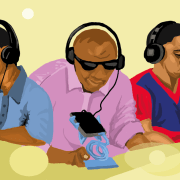This story was edited and published in partnership with The New Humanitarian. With reporting support from Alzouma Seini Soumaila. Videos and photos by Al-Amin Muhammed Ibrahim. Animation by Gams Studios.
Feature image description: In the Dan Dadji Makaou refugee settlement, a group of entrepreneurial refugees are breaking down soap base to create a fresh batch of handmade soap, which they will sell. Al-amin Muhammed Ibrahim/TNH.
Maradi, Niger (Minority Africa) — Tens of thousands of people fleeing bandit violence in Nigeria’s northwest have been welcomed across the border in Niger, with local communities sharing both land and business opportunities in a potentially new model for refugee integration in West Africa.
Galadima Hadi is one of an estimated 80,000 Nigerians who has found hospitality in the Sahelian country. He and his family left Kwadi, a village in Zamfara State, after scores of bandits riding three-up on motorbikes raided one afternoon in 2020 – just before the harvest – and killed five people.
“We heard the gunshots all the way in the village centre and knew they were coming for us,” he recounted.
Hadi has now settled in Garin Kaka, in southern Niger’s Maradi region. But rather than the fences and gates that usually mark refugee camps around the world, he lives in a regular village. It is one of three in Maradi known as “Opportunity Villages”, an initiative that seeks to dissolve the barriers between refugee and host communities.
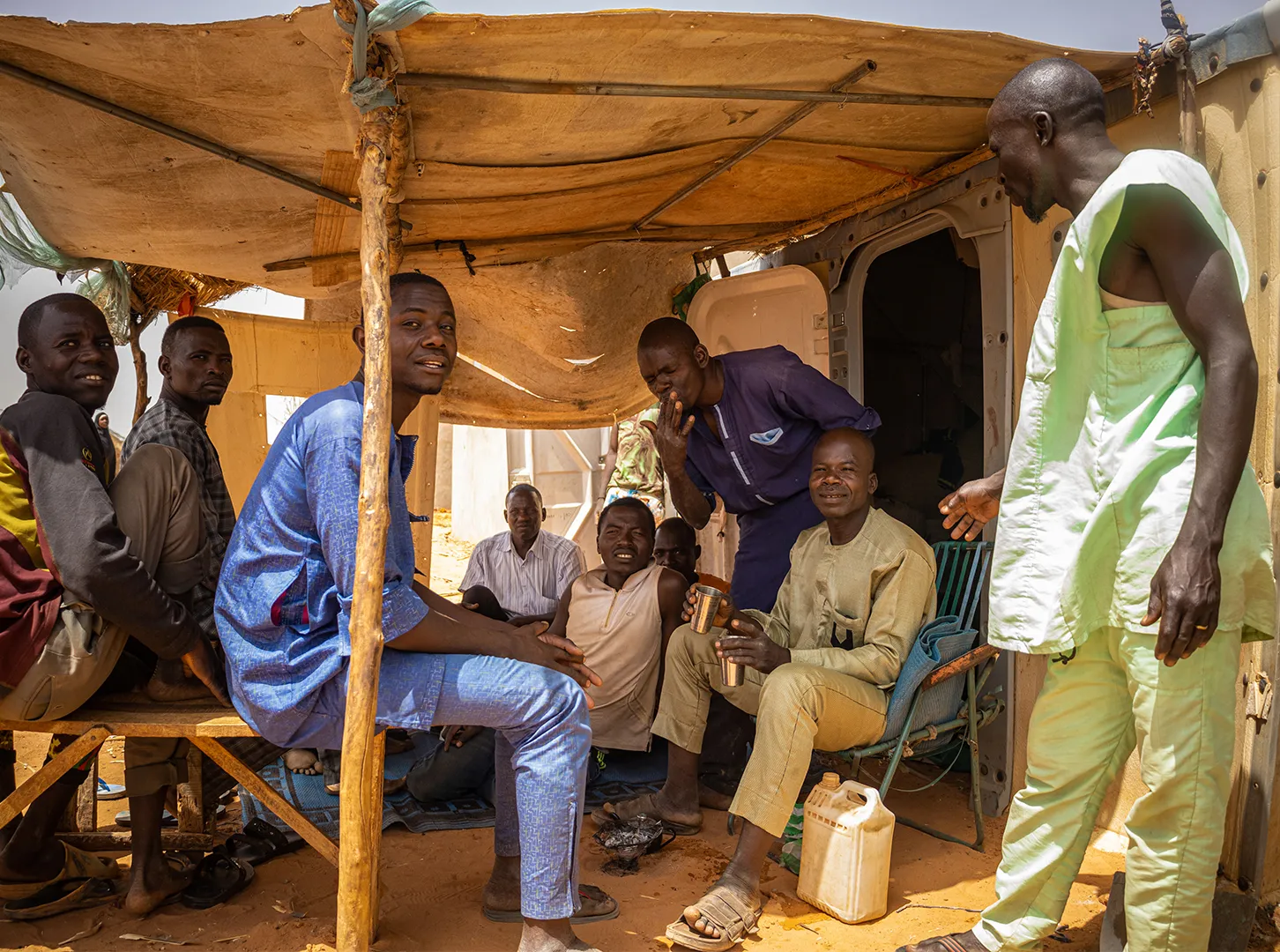
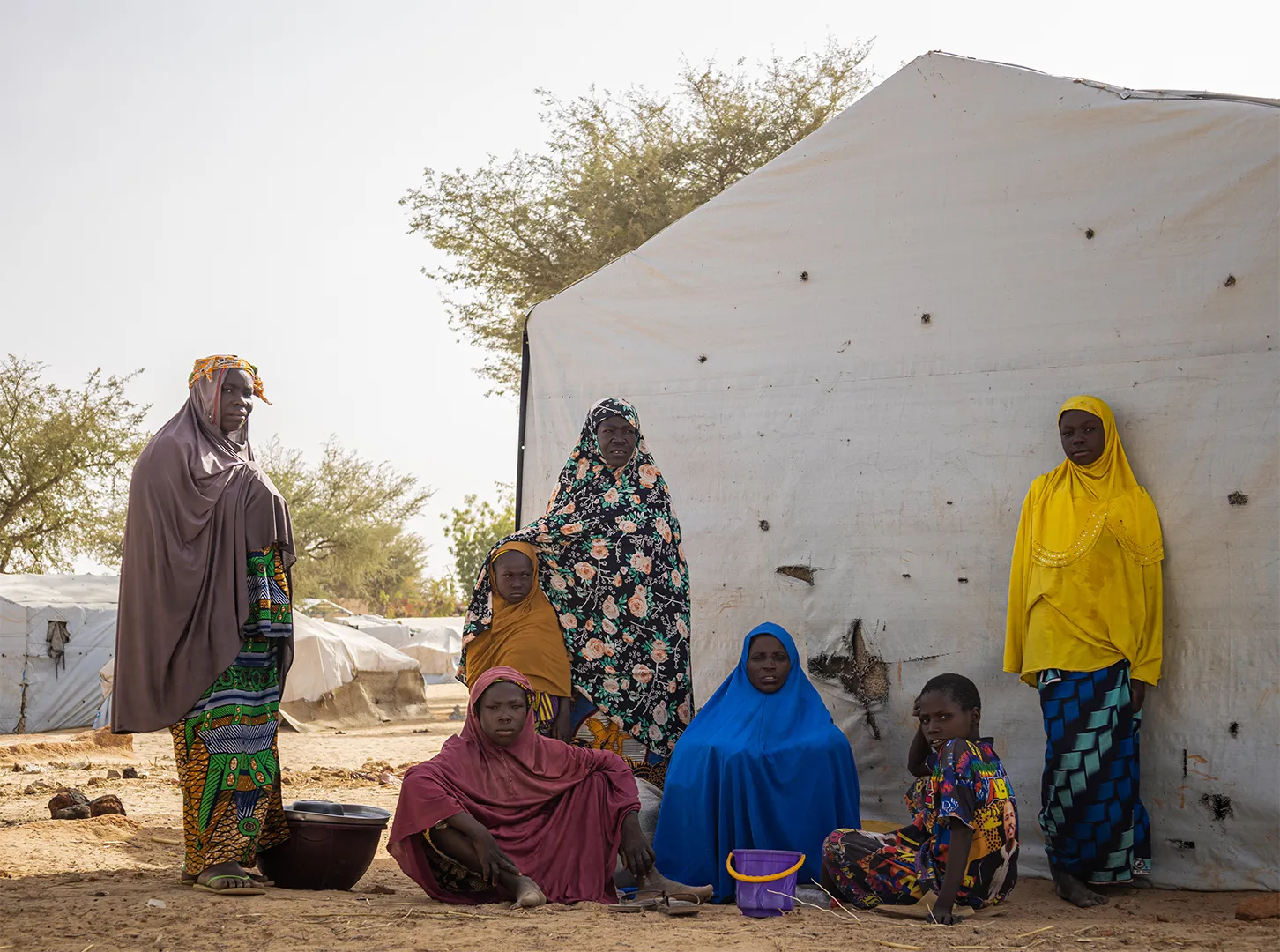
The Opportunity Villages programme, the first of its kind in West Africa, has been pioneered by the Niger government and UN refugee agency, UNHCR. It aims to boost the livelihoods of both the new arrivals and residents by encouraging sustainable small-scale business ventures.
But the five-year-old scheme has had a rocky journey. It was interrupted by the COVID-19 pandemic soon after its launch, and has also faced the disruption of economic sanctions imposed by regional governments following Niger’s 2023 military coup. Both the authorities and UNHCR hope those setbacks can be overcome.
The scourge of banditry in Nigeria
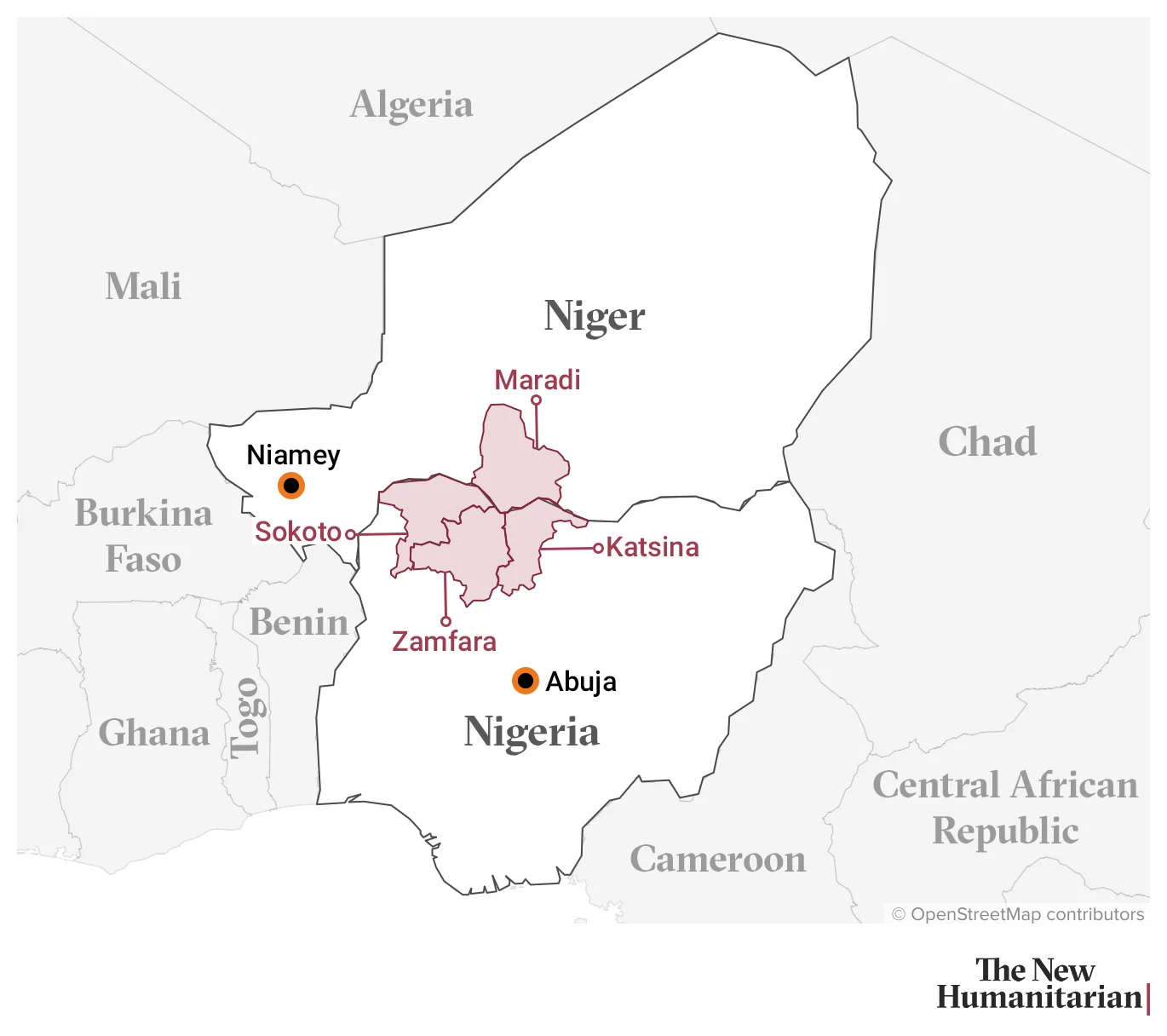 More than 600,000 people have been forced to flee their homes in northwest Nigeria over the last few years, escaping armed banditry and tit-for-tat identity-driven vigilante violence that has traumatised a vast region and deepened rural hunger.
More than 600,000 people have been forced to flee their homes in northwest Nigeria over the last few years, escaping armed banditry and tit-for-tat identity-driven vigilante violence that has traumatised a vast region and deepened rural hunger.
The gunmen have cut a swathe of suffering through rural Katsina, Sokoto, and Zamfara states, killing, raping, kidnapping, and rustling cattle – undermining the region’s already fragile economy.
Between 2020 and the first quarter of 2024, at least 6,600 people have been killed, and bandits have taken control of entire districts. These gangs – some as large as 1,000 well-armed men on motorbikes – loot at will, impose taxes on local communities, and force farmers to work as indentured labourers on the land they seize.
At its root, the violence in the northwest is driven by competition over land between predominantly Fulani herders and mainly Hausa farmers. It has been further exacerbated by the lack of an effective police presence, low levels of trust in government institutions, and a weak justice system.
The typical response by people to the rural insecurity has been to try and get out of its way – either moving into relatively safer towns, or crossing the border into Niger’s Maradi area.
New opportunities across the border
Niger is one of the region’s poorest countries in GDP terms but currently hosts over 300,000 refugees from Mali, Burkina Faso, Chad, Sudan, as well as Nigeria. It generally does not require refugees to stay in camps; most live in rural or quasi-urban districts, locally integrated into host communities.
But with the Opportunity Villages, UNHCR and the Niger authorities have gone a step further. The goal has been to help refugees become economically self-sufficient by living and working alongside their hosts, developing a more sustainable alternative to traditional refugee settlements.
Refugees sheltering in border villages have been encouraged to move further inland. It is not only out of concern for their security, but by shifting closer to Maradi, Niger’s second-largest city, the refugees also have access to its markets and far greater economic opportunities – hence the initiative’s name.
Care was taken in selecting the host villages where the refugees would settle. It involved consultation with community leaders over their acceptance of new arrivals, cultural compatibility, as well as security considerations. Eventually three were chosen: Garin Kaka, Chadakori, and Dan Dadji – all between 25 to 70 kilometres from Maradi.
But first the villagers had to agree to provide land for the construction of the settlements, with owners compensated with land elsewhere. In Dan Dadji, after much deliberation, that amounted to 8.5 hectares. Boreholes were then dug, latrines built, and schools and clinics established to meet the needs of refugees and locals alike – and at least 21,000 refugees moved in.
Potential integration difficulties have been eased by the shared historical ties that exist between the ethnic Hausa communities that live on either side of what for locals is an effectively non-existent border.
“There are long-standing familial, cultural, faith, commercial and community links between the communities on both sides of that border going back centuries,” explained Chidi Odinkalu, a professor of international human rights law at Tufts University, and a Nigerian human rights campaigner.
Building local businesses
Yet despite the investment made in the Opportunity Village concept, success in building refugee economic independence has been a struggle.
For the first two years, UNHCR supplied staple rations – including grain, vegetable oil, and baby food – to every household in the villages, regardless of whether refugee or Nigerien. A cash allowance of about $9 per person per month was also provided.
That relief was scaled back after 2022, with food support given only to refugees, and the monthly allowance was reduced to $5.70.
UNHCR has focused on fostering business collaborations between refugees and host communities. This has involved a range of training programmes, including soap making, cooking oil production, and tailoring.
However, in Garin Kaka and Chadakori, only a handful of refugees have been able to start businesses – typically by leveraging their monthly allowances – and the majority still rely on UNHCR aid from month to month.
In Dan Dadji, where the market is closer and the host community seems better organised, more joint ventures appear to have taken off.
Amina Sa’id, 42, is part of a 20-member Adashe group – a rotational money pooling system – that includes refugees and locals. Each month, they receive a bag of bambara nuts from which they produce cooking oil, which each member then sells for $1.60 per litre.
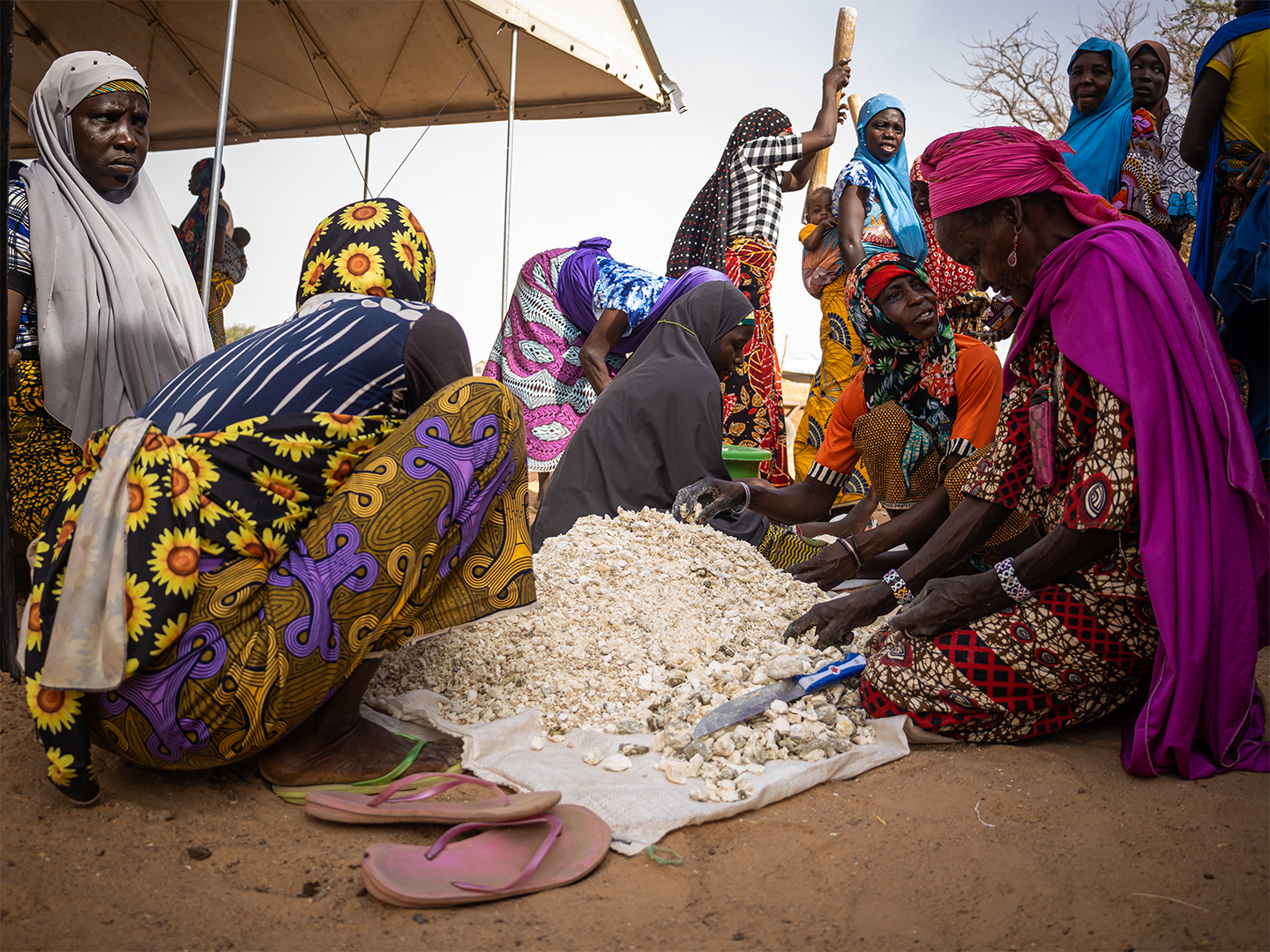
The profits are collected, divided into two, and one half is saved monthly. The other half is reinvested to purchase more nuts. At the end of the year, the accumulated savings are shared among the members.
Amina’s share from the group’s savings last year amounted to roughly $8 – about the cost of one-and-a-half kilos of meat. She said she added this sum to her personal savings, and purchased a goat for a future livestock business.
“It was simply not profitable”
Across all three villages, vocational training – one of the key elements of the empowerment initiative – has been problematic. It has produced too many people with the same skills producing the same goods, leading to market oversaturation.
The soap-making business of Halima Mousa, a 28-year-old resident of Dan Dadji, was one such victim, and she found she couldn’t compete. “I don’t make soap for sale anymore,” she said. “It was simply not profitable.”
While the refugees in Garin Kaka appreciate the economic support, they feel the micro-enterprise schemes failed to provide a reliable income. Many said they were unable to build assets and long-term savings.
For Sadiya Musa, 35, that has meant being constantly dependent on aid. Back in Sokoto, she had been a self-reliant farmer, but in Garin Kaka she is uneasy about her future, and that of her children.
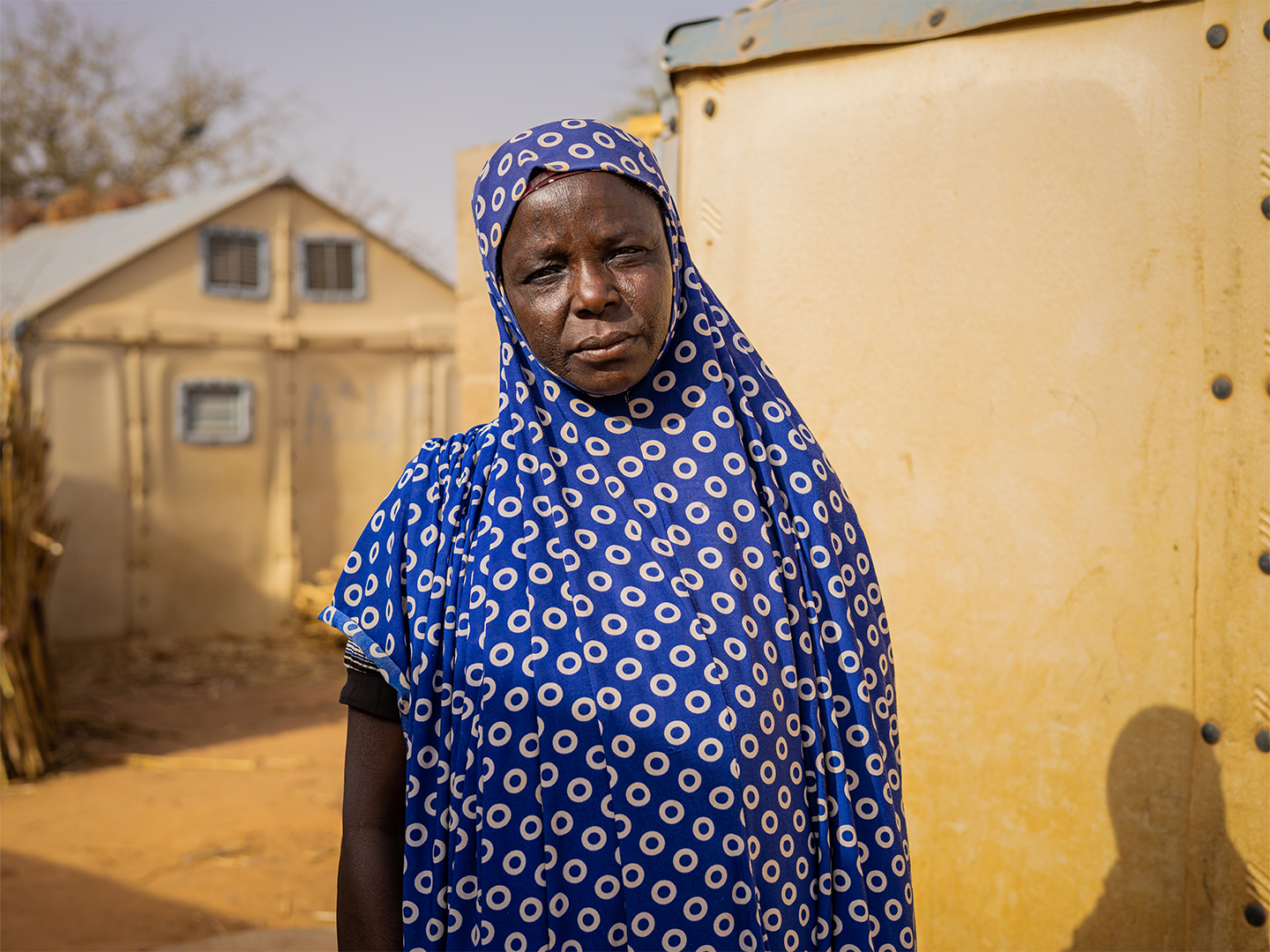
“I am grateful for the safety that we have found in Garin Kaka, but I am constantly reminded that it is not our true home,” Musa explained. “Here, we don’t have the farmland and livestock that we had back home, and we are raising our children in a place where they own nothing,” she explained.
It is the locals in the three villages who seem to have benefitted the most. Through their existing economic and social networks, they have been able to take advantage of the increased economic activity, the infrastructure development, and job creation. The refugees, on the other hand, are still trying to rebuild their lives.
Jika Muhammed, who has served as a community leader in Garin Kaka for close to 10 years, said he has observed a dramatic change in the local economy since the arrival of the refugees.
“Before the refugees came, businesses struggled due to a lack of demand – even food sellers faced losses,” he said. But an increased population has created new possibilities: “No matter what you’re selling, it will sell fast.”
In response to refugee disappointment over the impact of the Opportunity Villages, UNHCR indicated that last year’s coup and resultant sanctions have created considerable uncertainty, which has affected investment in the programme.
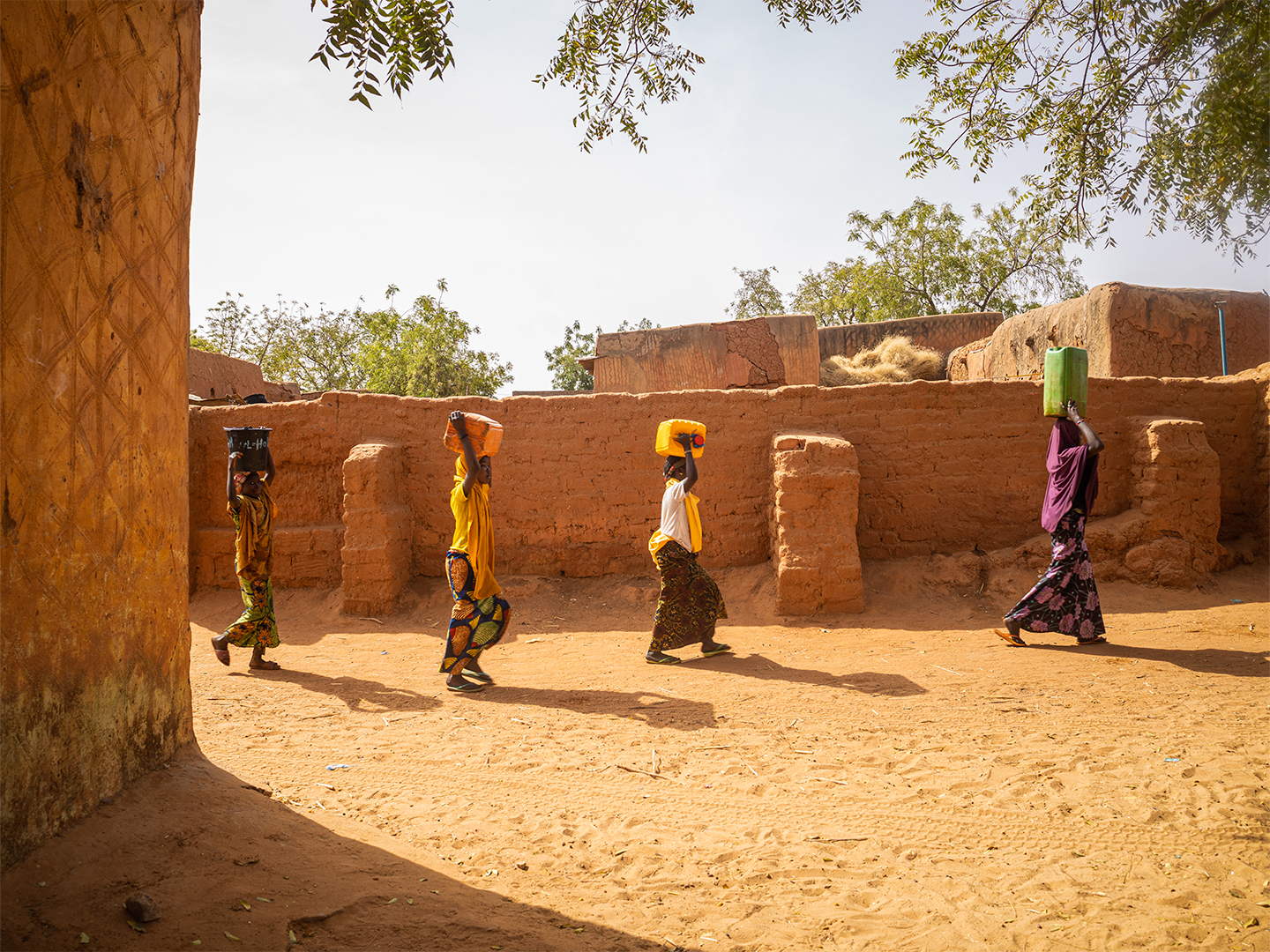
Among the plans put on hold were the development of agro-businesses and the creation of seven more Opportunity Villages. With the lifting of sanctions in March, projects are slowly resuming, but a full relaunch is still some way off, noted Emmanuel Gignac, UNHCR’s representative in Niger.
“There was a fear we had [in response to sanctions] that the authorities would retaliate on the refugees, [especially those] who are Nigerians, but it has not happened at all,” said Gignac. “It shows how deeply rooted the tradition of hosting refugees or people fleeing violence here in Niger is, constituting one of the core values of this country.”
Not just business benefits
UNHCR, however, points to other measures of success – that go beyond economic self-sufficiency.
Working groups consisting of refugees and locals have been established to address community issues such as child protection, and domestic and sexual violence. They have been instrumental in driving social change.
Rahmatou Abdou, 55, is a member of a 24-person working group in Chadakori tackling sexual violence. She, like other participants, is paid a monthly salary of $16.60, which also provides an important source of income.
“We attend ceremonies and gatherings to speak with people about the risks of sexual violence and the importance of reporting it when it happens,” said Abdou. “We urge people not to hide it… When a case is reported, we make sure the victim is taken to the hospital immediately.”
Ibrahim Ahmadou, 48, said that prior to the awareness initiatives, “many of us were ignorant of how to handle domestic violence and child abuse, and as a result these issues were very common in households”.
But he has since detected a change in attitudes: “Now, if someone decides to engage in beating or harassing women or children, they face strict consequences.”
The authorities have also promoted integration by encouraging marriages between locals and refugees, creating a sense of belonging.
Maryama Adamu, 30, a widow from Sokoto, finally settled in Dan Dadji, where she met Alhassan Salihu, a 59-year-old resident. He had been helping new refugees to settle in, and over time a friendship developed into something more, and they decided to get married. “I know this is where I belong now,” Adamu said.
Marriages and inter-communal relationships play a vital role in fostering a long-term emotional connection to a new country, noted Peace Adebola, a humanitarian lawyer based in Nigeria.
“When refugees form families and marry, they become an integral part of the host country, facilitating cultural exchange and breaking down stereotypes, which ultimately leads to a more inclusive society,” she explained.
Beyond those personal connections, Opportunity Villages could yet become a blueprint for mutually beneficial refugee-host relations as the local economy recovers from the impact of regional sanctions.
Edited/Reviewed by PK Cross, Caleb Okereke, Samuel Banjoko and Uzoma Ihejirika


